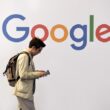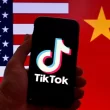Google has been the dominant force when it comes to web search, but now to give it a legitimate run for its money comes OpenAI’s ChatGPT generative AI Chatbot with search engine capabilities.
The significant upgrade to ChatGPT enables the AI chatbot to provide real-time information from across the web and enables users to receive “fast, timely answers” with links to relevant web sources — information that previously required using a traditional search engine, the company said.
So what all is on offer – ChatGPT’s homepage can now offer direct tabs to sourced material on topics ranging from weather forecasts and stock prices to sports scores and breaking news, the company said.
These would link to news and data from providers that have signed content deals with OpenAI, including France’s Le Monde, Germany’s Axel Springer and the UK’s Financial Times. Examples of the new interface shown on the OpenAI website closely resembled search results on Google and Google Maps, though without the clutter of advertising.
They also resembled the interface of Perplexity, another AI-powered search engine that offers a more conversational version of Google with sources referenced in the answer.
It should be noted that both OpenAI and Perplexity are facing lawsuits from the New York Times for scraping or linking to copyrighted content without permission.
Rather than launching a separate product, OpenAI has integrated search directly into ChatGPT for paying subscribers, though this will be expanded to users that use the free version of the chatbot. Users can enable the search feature by default or activate it manually via a web search icon.
The company added that any website or publisher can opt-in to appear in ChatGPT’s search results, with OpenAI actively seeking feedback from content creators to refine the system further.
‘Favorite feature’
Since their launch, data on AI chatbots like ChatGPT or Anthropic’s Claude have been limited by time cutoffs, so the answers provided were not up to date. This has been seen as a weakness of AI chatbots, especially at OpenAI, which does not have a stand-alone search engine providing more timely data. In contrast, Google and Microsoft both combine AI answers with web results.
OpenAI CEO Sam Altman wrote Thursday on X that search is his “favorite feature we have launched” on ChatGPT since the bot’s debut in 2022. “I find it to be a way faster/easier way to get the information I’m looking for,” Altman added on Reddit.
The launch will raise more questions about the startup’s link to Microsoft, a major OpenAI investor, which is also trying to expand the reach of its Bing search engine against Google.
With this move, Altman has set his company on a path to become an internet powerhouse and successfully catapulted the company to a staggering $157 billion valuation in a recent round of fundraising that included Microsoft, Tokyo-based conglomerate SoftBank and AI chipmaker Nvidia as investors.
Therefore, enticing new users with search engine capabilities will increase the company’s computing needs and costs, which are enormous.
While, the upgrade has a lot of potential we will have to wait and see if it is able to rise and match the steps of Google.
Here’s a closer look at the potential repercussions for Google –
1. Revenue Decline from Advertising
Google’s search engine dominance is built on its advertising-driven model, where paid search results, product listings, and display ads generate billions in annual revenue. Should ChatGPT’s ad-free, conversational search gain traction, it may attract users who prefer uncluttered results, free from distractions. This could result in a gradual user shift away from Google, impacting its advertising revenue significantly.
Advertisers might also explore alternatives, potentially reducing their spend on Google if user engagement and search volume fall. This would challenge Google’s ad revenue model, prompting a rethink in strategy to retain both advertisers and users.
2. Erosion of Market Share
For decades, Google has maintained a near-monopoly in the search industry. ChatGPT’s entry represents a fresh option for users seeking AI-generated, real-time answers and reliable sources, something Google only recently started incorporating into its own offerings. If ChatGPT effectively handles complex queries, keeps data current, and continues enhancing its model, Google could witness a slow but steady erosion of its market share.
With each innovation from ChatGPT, especially in niche areas like real-time updates without ads, users may begin turning to it for specific needs, particularly those frustrated with Google’s ad-heavy layout. This could lead to more loyalty toward ChatGPT, further chipping away at Google’s long-held dominance.
3. Increased Cost of Innovation
Google’s cost of innovation would likely surge as it competes with ChatGPT’s distinct AI capabilities. Google has already invested in AI to integrate it with its search results, but maintaining competitive parity with OpenAI may require even more substantial R&D spending to enhance Bard, Google’s AI, and search services to keep up with user demands.
Besides, since OpenAI’s ChatGPT offers a conversation-like interface with less noise from advertisements, Google may be forced to reevaluate its entire user interface and user experience to retain its core audience. This could increase Google’s development and operational costs, potentially affecting its profit margins.

4. Potential Shift in Partnerships
OpenAI has forged partnerships with content providers such as Le Monde, Axel Springer, and the Financial Times to feed information into ChatGPT. Should these partnerships prove successful, other publishers may be tempted to work with ChatGPT or similar AI platforms, especially if it means their content is displayed without ads cluttering the experience. This could lead to a redistribution of publishing agreements, where some media houses shift their attention away from Google’s platforms.
In turn, Google may have to enter or renegotiate similar partnerships to avoid missing out on essential content that could attract or retain its users. This reallocation of media partnerships would impact Google’s bargaining power and content diversity, making it harder to monopolize digital media relationships.
5. Public Perception and Trust
Google has spent years refining its search algorithms, especially to prioritize user-friendly, accurate, and timely information. If ChatGPT succeeds, public perception of Google could shift, with users viewing Google as less innovative, particularly if ChatGPT proves to be a faster, more reliable option. Trust in Google’s monopoly status could wane, impacting its brand image as the sole go-to for web search.
This loss of trust, coupled with increasing criticisms around data privacy and targeted advertising, may accelerate user migration to ChatGPT, especially as OpenAI brands itself as a more user-centric alternative.
6. Impact on Google’s Ecosystem
Google’s search dominance has fed into a larger ecosystem involving products like Gmail, Maps, Drive, and even Android. If users move away from Google Search, it could create ripple effects across Google’s ecosystem, weakening its interconnected services and reducing user data access, which is a crucial factor in Google’s advertising strategies. Moreover, competition from ChatGPT might prompt other Google services to integrate similar AI enhancements, which could strain Google’s resources.
Snapshot
Should ChatGPT’s search feature gain traction and sustain user engagement, Google faces the dual challenge of protecting its revenue and maintaining its search dominance.
A successful ChatGPT could cause Google to rethink everything from its ad model to its user experience. In a market where Google has been largely unchallenged for years, the competition may push Google to innovate rapidly, potentially benefitting users by driving both companies to create better, more efficient, and user-centric search experiences.










